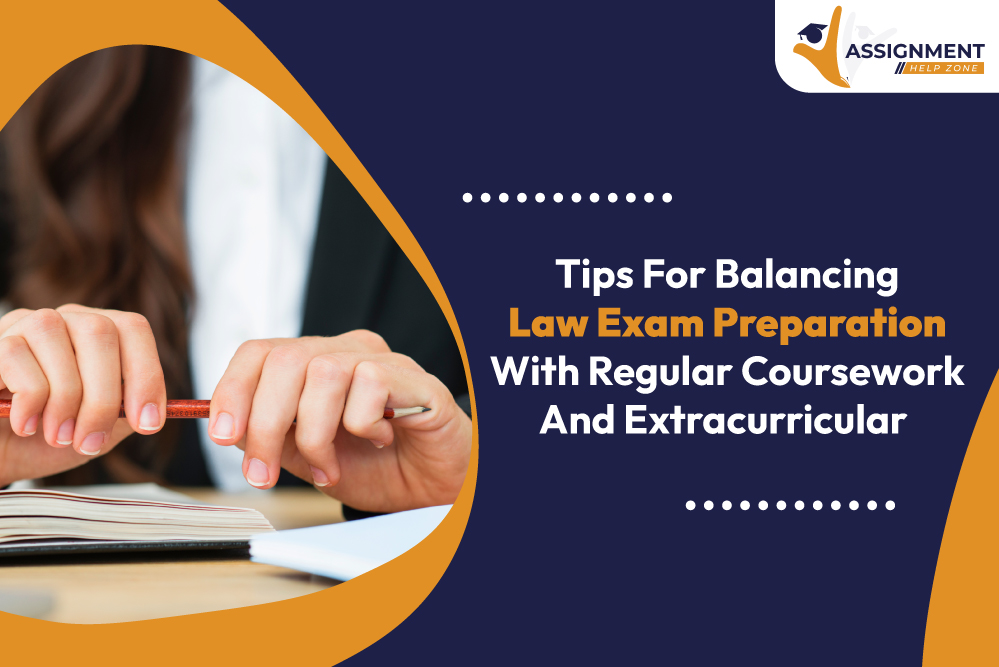Are you a law student or planning to join law school? If so, then you should know that law school or exams are no joke. However, if you are on the hunt for cracking a secret code while preparing for your law exam, then you will be stunned to know that you are not alone. Did you know there are so many students struggling with law school preparation? Moreover, this led them to have a tough time conveying what they knew on the test.
Most importantly, law school throws a lot at you. Between demanding coursework, pressure-filled exams, and the desire to stay involved in extracurriculars, maintaining balance can feel impossible.
Every well-prepared student gets nervous when exams are around the corner. Despite controversy over their administration, exams are a part of reality.
You must consider some strategies during your law studies in the UK. Oh, don’t think you are the only one who dreams of getting high grades. There are several law modules that one has to attend, and this can be quite a task if one does not have a schedule.
When a person revises inefficiently, he or she is likely to spend a lot of time on areas that do not deserve that much attention. This is a realisation of forgetfulness as seen in a situation whereby a student cannot seem to remember certain details as he or she sits for exams.
So, it is a shift from having pieces of information about each topic. Instead, the focus is on attaining depth in each. Luckily, it is possible to turn the act of revising into an easy and enjoyable way to get those coveted As.
Law Exams
Just the sound of a law test can give every student a shiver, even those with the best of intentions. These are the highly stressful examinations for which you are tested on your knowledge, evaluation, interpretation, and communication of legal principles based on well-established knowledge.
But fear not; all of you will be lawyers in the making. This is your guide to law exams help, with tips on how to approach this challenging part of the learning process in the right way. So, if you want to achieve good grades in exams, then these strategies can help you out:
1. Take comprehensive notes and engage with practice law exam questions.
2. Identify the most crucial topics within each module.
3. Discuss complex concepts, quiz each other, and fill the gaps in your knowledge with your classmates.
4. Don’t limit yourself to the assigned materials.
5. Set a detailed schedule, allocating time for studying, attending classes, and extracurricular activities.
Tips for Balancing Law Exam Preparation
Being a law student and dealing with tough subjects can be quite challenging. But what if we tell you that you can deal with challenges? Well, there is no need to panic. As we said earlier, we will be helping you with that. So, let’s just find out your problem’s solution:
Time Management for Law School Success
You must know that law school exams demand a strategic approach. So, you need to create a winning schedule and stick to it. Law schools usually announce their final examination timetable in the prior days or weeks. This can help you schedule your exam preparation and set time for extracurricular activities at the beginning of the semester.
As a legal scholar, you need to know that outlining is not something to do the night before the paper is due. So, start to incorporate outlining for every class throughout the semester. This will be time-saving and will compile a more detailed study reference.
Spare sections of your day to sit and go over outlines and memorize them. You can begin your preparation as early as possible. This will also familiarise you with the structure and other areas where you should spend more time.
Of course, exams are crucial. But do not forget about yourself. Schedule time for eating healthy and balanced meals, physical activity, interactions with other people, and sleep. Good physical and mental health are the best companions during examinations.
Focus on Memorisation
You see, memorisation is perhaps the most basic and yet very effective study technique among law students. The main idea here is that understanding leads to success in the exams, not mere memorising of the materials. Hence, you should have the ability to apply that knowledge analytically to solve exam questions.
Have you ever heard of Professor Gary Slapper? If not, no worries. Let us tell you that the professor offers a valuable analogy in his exam tips. You can get help from those tips. However, when writing, do not just put everything you have memorised onto the paper. As such, the penalty is prohibited under the above legal provisions, and the first sentence of the pattern question should be used to show how your legal knowledge applies to the specific question being asked.
That’s right. This will reflect a higher level of learning and analysis. Most importantly, it is a sign of quality efforts that the examiners would want to see.
Thoroughly check Past Papers
We understand that law exams can be daunting. However, the temptation to predict the exact questions is strong. But wait. Did you know Dr. Steven Vaughan, a Bristol University law lecturer, emphasises using past papers strategically? He suggests analyzing the types of questions asked about specific topics.
For instance, if your company law class focused heavily on “veil piercing” and subsequent assessments also tested this concept, there’s a good chance it might appear on the final exam.
However, Dr. Vaughan cautions against neglecting other areas based solely on past paper trends. He shares a personal narrative from his student days about focusing on just four out of seven EU law topics based on past papers. It is a strategy that backfired when the exam tested the neglected topics.
Practice Exam Answers
Memorising legal definitions, cases, and statutes is a crucial first step in law school exams. Did you know exams demand more than just recalling facts? Moreover, you need to demonstrate your ability to apply legal knowledge. So, students, start practicing answers to law exam questions. They allow you to integrate memorised details into a cohesive and well-structured response.
Apart from that, you need to focus on the most likely exam questions. Review past papers and course materials to identify crucial topics. Once you have a good understanding, practice answers that showcase your knowledge and analytical skills.
Effective answers begin with an understanding of the question. So, don’t rush. Take the time to dissect the question and identify its key elements. Most importantly, develop a targeted response that directly addresses what the examiner asks. This ensures your valuable knowledge is used effectively.
Exams can be stressful, and poorly crafted answers under pressure can derail your performance. However, practicing answer writing under relaxed conditions prepares you to navigate exam pressure with confidence. You’ll refine your technique, structure your responses logically, and identify areas requiring further revision.
Managing Coursework and Extracurriculars
Law school hurls a heap of challenges at you. Your challenges could be coursework, stressful exams, and wishing to be engaged in extracurricular activities. At the end of the day, one can get the feeling that the concept of balance in life is a mere myth. But worry not dear future lawyers; after reading our guide, you can conquer your goal:
Time Management
Well, this is the first and crucial step to achieving anything you aim for. You can create a very specific weekly timetable in terms of hours. However, it must be spent only on learning, going to classes, and being involved in other activities. That’s true; it is wise to use a planner or a calendar application to ensure you are not last-minute in preparing for the interview.
Most importantly, organise work in the session into focused work for 25 minutes with short breaks in between the sessions. This approach keeps the eye fixed on the goal and ensures that no one in the project becomes bored.
Extracurricular Activities
Who doesn’t love sports? You can select sports and other activities that are related to your future profession or that you enjoy doing. But wait. Don’t forget to control engagements that lead to the depletion of one’s energy.
However, if you want to travel and make travel time effective, then we have the best suggestion for you. That’s right. You can reread notes or listen to the lecturers during a bus or train ride going to an extracurricular activity.
Self-care
Self-care is crucial for balancing your law exam preparation with regular coursework and extracurriculars. So, you must have recommended 7-8 hours of sleep obtained by the person daily. A fresh mind is good for learning and works efficiently under pressure. It also enhances learning because the brain is well-rested.
Moreover, eat good, healthy food and avoid treating your body like a gym by not exercising regularly. You can even schedule activities that can help reduce your level of stress. This may be social activities such as interacting with family and friends or even resting.
Final Thoughts
So, following these tips with the optimum management of your well-being, you will manage to satisfactorily cope with the challenges of law exams as well as other facets of your existence.


